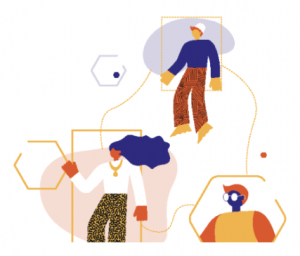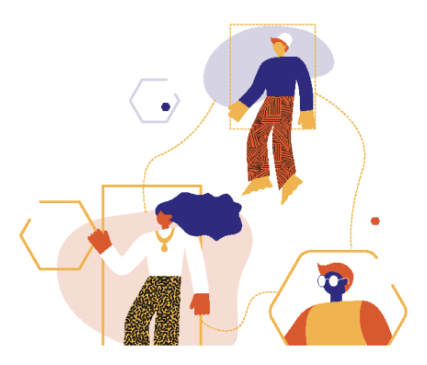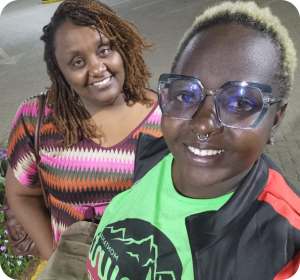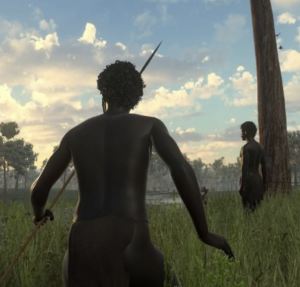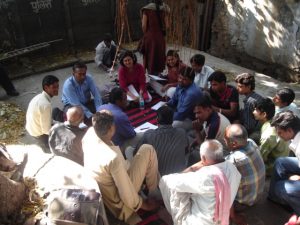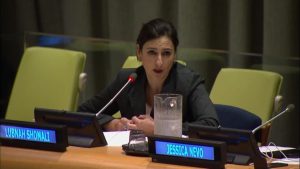Interview with: Stella Busolo Khachina Discussing: Usikimye and addressing...
Read More3. Land, Displacement and Human Rights in Palestine
Discussing: The situation for Palestinians, land and human rights
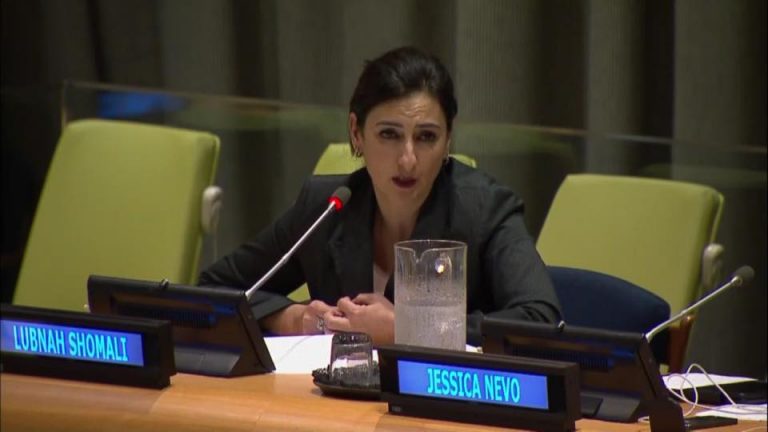
- Timecode
- Transcription
- Resources
- Guest
[02:42]
Her childhood in Palestine and immigration to USA
[03:40]
Motivations for returning to Palestine
[05:08]
BADIL: a human rights advocacy organisation
[06:15]
Community-based initiatives to enhance resilience and prevent displacement
[08:20]
Human impact of conflict, situation of Palestinians in West Bank
[09:20]
Denial of family unification
[11:49]
Use of laws to strip Palestinians of property rights
[16:10]
Use of re-zoning to create Israeli colonies/settlements
[18:28]
Colonisation, creation of laws for purpose of controlling maximum amount of land
[20:21]
Creating a coercive environment
[21:52]
Palestine traditionally an agricultural economy, but increasing urbanisation
[23:48]
Implementation of permit regime
[28:29]
Role of international community, international law & human rights
[29:35]
Humanitarian aid & development vs rights-based approach
[30:46]
Gaza
[33:32]
Right of return
[37:22]
Oslo accords & ‘two-state solution’
[39:28]
Hope and vision for the future
Deborah Cummins [0:22]
Welcome to Bridging Peoples. In this Bridging Peoples podcast, we explore the human side of aid and development. Join me as I chat with researchers and practitioners about their work around the globe. I’m your host, Deborah Cummins.
As we enter into the holy month of Ramadan, a time that in part is about reaching out to those who need it, it’s important to remember that COVID-19 is not affecting all of us equally. For some of us, we can snuggle in at home as best we can – and I hope that that’s what you’re doing. This episode though, is dedicated to others, those people around the world for whom Coronavirus only compounds an already impossible situation: refugees, people living under various forms of oppression, including the people of Palestine. In this conversation, I talk with Lubnah Shomali, Unit Manager for human rights organisation BADIL Resource Center for Palestinian Residency and Refugee Rights. This was a conversation that I recorded last year, in 2019, during a visit to Palestine.
Deborah Cummins [1:54]
So today I’m sitting in the offices of Palestinian human rights organisation BADIL, located in Bethlehem, in the West Bank in Palestine. And I have with me today, Unit Manager and human rights activist Lubnah Shomali, who will share with us a little bit about her life as a Palestinian woman, and also some of the work that she and her colleagues have been doing.
Welcome Lubnah. And thank you for joining me.
Lubnah Shomali [2:24]
Oh, you’re so welcome. Thank you for being interested.
Deborah Cummins [2:27]
So I like to begin these conversations by going a little bit into the personal, the human side. So can you share with us some of your story? What brought you here to Bethlehem and to be working with BADIL?
Lubnah Shomali [2:43]
I was born here in Palestine, in a small town which is adjacent to Bethlehem. My family immigrated to the US when I was very young – three and a half years old. I lived in the US for most of my childhood and adult life. During that time, we would visit Palestine, often during the summers. Because my father wanted to make sure that we had that connection to our relatives, to the homeland, and so on and so forth. So we are not refugees. We are immigrants, I guess. So we have American citizenship as well. But we’re also Palestinian.
In 2008. My husband and I, we decided to move back to Palestine permanently. It was a decision that we made as a family together, even though our children were quite young then. But we felt that it was important to be able to provide them with the opportunities that living in Palestine could offer – and I know that sounds kind of weird. But for us, it was important that they make a connection also to the homeland, and their relatives and way of life. And for me, particularly, there were two things that I wanted them to learn – the language, which I don’t, because I spent all of my education abroad. So I can speak Arabic. And now I can read, but I still can’t write, and I’m not fluent. I’m not a writer at all, I can’t write anything. Basically, I wanted that for them. I think language is important in terms of identity, and other things – being able to communicate with your, your people, your nation group.
And the other thing is, I didn’t want them to grow up being ashamed of who they were. Yeah, because in the American media, of course, Palestinians in Palestine are presented in a very negative light. And of course, this is an understatement. So I wanted to make sure that they understood the root causes of the conflict, and what was going on. So they didn’t grow up thinking, you know, “why is everyone against me”? “Why does everyone think I’m a terrorist?” And these types of things, which is basically – even to this day – the image that the US media presents about Palestine and Palestinians.
Deborah Cummins [5:08]
And can you share with us some of the work that you do with BADIL?
Lubnah Shomali [5:14]
First off, I would classify it or categorise it as an advocacy organisation. Well, first of all, we fall in the human rights sector. So we we’re not a development organisation or humanitarian aid organisation. We’re a human rights organisation. And the main focus of our work is advocacy. So even when we talk about the work that we do with Palestinian civil society, particularly youth, it’s about informing them and making them aware so that they can advocate on their own behalf. Some people call it of course, awareness raising, empowerment, you know, the donor community has a bunch of terms that they use.
We have what is called special consultative status with the United Nations. So we engage quite significantly with the UN and the many different forums, making statements, submitting statements and reports to the different bodies of the UN, on the specific human rights situation in Palestine.
Deborah Cummins [6:16]
In addition to these higher level interventions, you also support a number of community based initiatives. Can you explain a little more about that?
Lubnah Shomali [6:29]
Again, when we talk about BADIL being a human rights organisation, rather than a development or humanitarian aid organisation, we look at those types of initiatives with the purpose of creating a situation that allows enhanced access – either to land, or to certain services that would sustain communities and prevent them from being displaced.
So for example, we would install solar panels for a community centre so that they could have electricity, and be able to provide recreational activities for the community. Or we would build an agricultural road to areas that are Area C, for farmers, so that they could have easy access to their farm lands and be able to cultivate those lands. Or one project that we did was installing water pumps for villages. While they would receive water, the pressure was too low for the water to actually reach certain areas. So in certain communities, with the installation of the water pumps, they have increased the water pressure, and these families are now able to get access to water.
Deborah Cummins [7:46]
And as you know, I’ve been on a pretty steep learning curve since visiting here. I’m staying with a friend in Dheisha Camp, which I believe has existed as a refugee camp since the mid- 1940s. With the situation, with the conflict which is gone on for so long, it’s very easy to get confused with all of the details. So I’m hoping with this conversation that we can break it down a little bit. So can you begin by starting with what’s been the human impact of this conflict? What is happening right now in the West Bank, in Palestine?
Lubnah Shomali [8:33]
The human impact on Palestinian civil society has been devastating, I would say. We have some of the highest unemployment rates in the world, particularly among youth. Everyone – or maybe not everyone, but the vast majority of people that you speak with – are always looking for a way out, trying to get visas, or trying to get ways in which they can leave Palestine. As I said, it’s the creation of a situation that is unbearable: if you can’t move freely, and you can’t express yourself freely, and you can’t access your most basic human rights, land, water, healthcare, education, etc, etc. Even who you can marry is dictated by Israel, who you fall in love with is dictated by Israel – by its laws.
Deborah Cummins [9:26]
In what way?
Lubnah Shomali [9:27]
Well, they deny family unification. So for example, if a Palestinian in the West Bank were to fall in love with a Palestinian in Jerusalem, they can’t live together legally according to Israeli law. Or in other words, the status of what it means to be a Palestinian in Jerusalem will not be transferred to the West Bank ID holder. So they can’t live together in Jerusalem legally, according to Israel. So either this person who’s living in Jerusalem has to give up what he or she has in Jerusalem, their home, whatever and come to the West Bank. Or: the person with the West Bank ID lives illegally in Jerusalem, with their partner.
The same can be said for Palestinians with Israeli citizenship, Palestinians from Gaza. We all have a specific status within Israeli law. We all have a specific place in Israel’s legal hierarchy. And if we marry or fall in love outside that legal hierarchy, we can’t exercise family unification because it’s designed by Israel.
And they were very specific when they referred to this “creeping right of return”. They were afraid that Palestinian refugees would marry Palestinians inside Israel, and be able to return via marriage – even though this would be a valid exercise of their Right of Return. They wanted to make sure that they kept Palestinians out. So it’s one of the mechanisms they use to keep Palestinians from returning. And to also create a coercive environment.
So in many of these mixed marriages, people end up leaving Palestine altogether, going to a country where they can live together legally. But this is standard practice among states. So when I married my husband, and I had American citizenship, of course I was able to transfer the citizenship to my partner, my husband. There’s a process for this. And the reason that this exists is because international law and states recognise the right of the family unit to live together. Israel does not do that.
Deborah Cummins [11:48]
Again, because the situation is so complicated, we’re talking about millions of people’s lives over many decades. It’s kind of hard to know where to begin. But I think that land is a good place to start. So can you talk to me please about how land has been used, how land grabs have taken place, and how this has shaped and formed the situation between Palestinians and Israelis now?
Lubnah Shomali [12:24]
Well, Israel has created quite a sophisticated mechanism in order to steal Palestinian land. And it is theft, the theft of Palestinian-owned land. Probably the biggest theft of Palestinian owned land occurred shortly after the Nekba, or Catastrophe, of 1948. Of course, this coincides with the creation of the State of Israel. After the Zionist militias that were already present in Palestine during the mandate, after they ethnically cleansed the majority of Palestine of the Palestinian population, they were then incorporated into the Israeli military. So the Zionist militias became Israeli military and the leaders of the Zionist militias became heads of the Israeli Government.
So then, after they created themselves as a nation state, they began issuing laws, laws to strip Palestinians of their property rights. Of course, these laws that they created are not, let’s say, in compliance with international law. And one of the major laws that they issued were the Absentee Property Laws of the 1950s. So basically, what these laws stated, what this law did is that after the Zionist militias forcibly displaced Palestinians from the land and kept them away, they basically labelled Palestinians is ‘absent’, even though they were the ones that had created the situation in which Palestinians were absent from their land. And then – because of this declaration that they were absent –this became ‘absentee property’, and they said that the property would come under the ownership of Israel.
And so, they created a custodianship for these absentee properties, under which, theoretically, Israel should safeguard the lands until Palestinians return. But in actuality, what happened is that a significant amount of these lands were converted into Israeli state lands, and came under the direct ownership of the Israeli government. And to this day, I think 90% to 93% of what is Israel today, are Israeli state lands. That same percentage is Palestinian lands.
So they were Palestinian lands that were confiscated by the custodianship, through this Absentee Property Law. They were then converted into Israeli state lands, which then became public use lands for the state. And so of course, the state uses these lands to provide housing, infrastructure and of course, bring in additional Israeli Jewish colonisers to settle the land. So they use the law as one of the ways in which to facilitate this land grab.
There are many other mechanisms that they use as well besides the Absentee Property Laws. They use discriminatory zoning and planning. They use annexation of course, which is taking land by force, or aggression – which is, of course, also absolutely prohibited under international law. They use different ways to deny access. They use the permit regime.
So for example, when we talk about discriminatory planning and zoning, they will zone an area in a particular way – of course without the consent and without the participation of the Palestinian owners of land. So for example, they zone an area as military, they will zone it as an archaeological dig, or they zone it as a nature reserve. And then of course, the land becomes off limits to Palestinians, even though it’s their land.
And then they will begin to use the land, and it will be transformed into a colony, or an Israeli Jewish-only settlement. One of the colonies here, the big one that is here in Bethlehem that you can see from any angle, that started off as a nature reserve. So it was a hilltop that was covered in trees, that previously Israel had zoned as a nature reserve. And of course, all the lands there were owned by Palestinians from the Bethlehem Beit Jala area. Because it’s a hilltop that’s kind of centrally located between those three cities.
And then, in the first Netanyahu administration in… don’t quote me on the years but in the 1990s, he cut down all the trees. His administration cut down all the trees. And but again, building what is now a settlement. It was a forest my husband knew, because my husband lived here, all of his childhood and adult life. He said, when they were younger, they used to go to the forest and birdwatch and camp and hunt little animals. So he and his friends would trek up to the hill and just, you know, spend time there. Now it’s a settlement. No one can trek up there and do anything, or use us that area. Also because the forest is gone, it was cut down. And then the settlement was built on top of it.
Deborah Cummins [18:27]
What strikes me in this conversation is your use of words like ‘settler’ and ‘colony’. And it’s not the first time that I’ve heard it. I really needed, though, to come to Palestine and to see what was happening in order to understand it. I come from a settler colonial state myself, Australia, and I didn’t expect to see it happening before my eyes in real time. But that is what’s happening here. And It seems to me like that’s a more useful way of understanding the conflict rather than considering it as a religious conflict or an ethnic conflict…
So can you talk to me a little bit please about how the legal apparatus is being used in order to progress what is essentially a colonial agenda?
Lubnah Shomali [19:24]
It’s the creation of laws to serve a specific purpose, which is to control the maximum amount of land. Because for Israel, controlling the land means you can control what’s on, and what’s not on, the land. And for them, controlling the land means not only do they want to control it, but they also want to control it Palestinian-free. So they want Palestinians not there; off the land. And they also want the other aspect of it, which is to colonise that territory with a desired population – in this case, Jews from around the world. So in order to be able to do that, they have to remove Palestinians from the land. They have to keep them off the land.
Deborah Cummins [20:08]
And how did they do that?
Lubnah Shomali [20:11]
Armed violent conflict creates what international law calls force, and forces people off the land. The other way that they force people off the land is what international law calls a ‘coercive environment’. A coercive environment doesn’t necessarily have to be physical, where violent force applied. In layman’s terms, it means the creation of a situation that is so unbearable that people really have no choice but to leave their place of origin or habitual resonance. So: fear tactics, threat of persecution, cutting Palestinians off from their livelihoods.
Because Palestine was traditionally an agricultural society, if farmers don’t have land to farm, then how can they make a living? Suppression methods, the permit regime, basically the violation of fundamental rights that allow you to live and have an adequate standard of living in the area in which you reside. So removing these things, like access to water, movement restrictions, etc, you create an environment in which an individual or group can’t really remain in that location. And while no physical force is applied, there is an element of force or unwillingness, or a coercive situation that is created, that forces people to go elsewhere.
Deborah Cummins [21:50]
Absolutely. And the impact on livelihoods…
Lubnah Shomali [21:53]
Absolutely. Yeah, as I said, Palestine was predominantly an agricultural community, an agricultural state. The different produce that was native to Palestine: the grapes, all. Of these things, were the foundations of our economy. Without the land, how can we continue this traditional lifestyle, or this traditional economy? So that was that was a main factor, of course. And now what you see is a build-up of the city centres. And people who had families who had traditionally been farming, agricultural families, are no longer farming because they don’t have this access, or this ability, to farm the land.
Deborah Cummins [22:48]
And for the layperson, who’s struggling to understand the complexity of it: how do you bring all of these different factors together to be able to explain the bigger picture?
Lubnah Shomali [23:01]
So building the wall is a mechanism. The permit regime, the land grab, the denial of movement, the suppression, the lack of freedom of expression, the denial of right to worship, the denial of residency, the denial of family unification, all of these things are used to maintain this regime that is designed to keep Palestinians out – or get them out, and keep them out – and continue to control the land in a way that benefits Israel.
Deborah Cummins [23:36]
You’ve mentioned a couple of times as well, the permit regime. Can you explain a little bit more about that?
Lubnah Shomali [23:45]
Certainly. What BADIL did early on was kind of categorised the nine main ways, or the nine main policies, in which Israel creates a coercive environment. I mentioned one already: the discriminatory zoning and planning. There are eight other ones. One of them is the permit regime. The Israeli permit regime is a complex system of permits to which Palestinians must adhere to, in order to be able to do very basic things – like build, or develop, or for travel, get access to health care, education, movement, the ability to worship. And there are 101 different permits within the Israeli permit regime.
Oftentimes, the administrative aspect of the permit is very vague, or very unknown, so people don’t really know how to apply for which permit is best suited for them. And of course, approval is based on what Israel deems to be in their security interest. Oftentimes, a permit will be denied based on security. But the allegation that is coming from the Israeli government will be not anything substantial. So it’s more of a way, or a mechanism, to be able to keep Palestinians from their land, in some cases to keep Palestinians from being able to access health care, education. To keep Palestinians confined and contained, so they have very little mobility. Of course, it works in combination with the check-points and the barriers and so on and so forth.
So Palestinians have to get permission from the Israeli civil administration to be able to do any type of development to their land. So if you submit for a permit, let’s say to build a water cistern… Let’s say you’re a farmer, and you don’t have water on your land (which is another resource that Israel controls), but you don’t have water on your land. So you decide, for example, that you are going to gather rainwater, build a cistern and gather rainwater so that you can farm and irrigate your land throughout the year. You have to get a permit for that. And if you don’t get a permit, then you can’t legally build, according to Israeli law. Sure.
So if you don’t get the permit, and the Israeli civil administration finds out that you did do some development, like a cistern or even like a barracks, because you know, farming is seasonal – sometimes you need to stay on the land. Or whatever type of infrastructure, it could be a fence, it could be electricity, it could be whatever. So if you don’t get this permission, and the Israeli civil administration finds out, then they deem your structure, whatever it is, to be illegal. And then they issue a demolition order. And so, when you hear about ‘illegal Palestinian structures’, and Israel demolishing another ‘illegal structure’, these are structures that were built – yes – without Israeli permission. But they were built on Palestinian lands, that were supposed to be for Palestinian use. It’s a way that Israel prevents Palestinians from being able to take advantage of the natural resource that they have, and also be able to continue their livelihoods and expand, allowing the natural growth of communities. Because, you know, communities grow and they need to expand
Deborah Cummins [27:38]
Are Israeli citizens subject to a similar set of permit requirements?
Lubnah Shomali [27:42]
They are, but they are facilitated more for them. So for example, the number of permits that are rejected by Israel, or denied by Israel, when submitted by Palestinians is close to 98%. At the same time, the number of permits submitted by Israeli Jews, including colonisers within the Occupied Territory, have an approval rate at the same rate that Palestinian permits are rejected. So 98% approval rate for Israeli Jews; 98% rejection rate for Palestinians. So there is that discrimination within the system, and within the permit regime, and within many Israeli actions and policies and laws.
Deborah Cummins [28:28]
So given the situation of coercive control, where people are being excluded from their livelihoods. They’re not able to farm the way they want. They’re not able to do business the way they want. They’re not able to move around. There are checkpoints everywhere.What options are available, and what can the international community do to support things?
Lubnah Shomali [28:54]
Well, we have this great framework called international law and human rights, that was created by the international community to support peace throughout the world. So they created this set of laws, and principles, and basic rights, that states are supposed to adhere to. And if they don’t adhere to them, then there are consequences which is also contained within this framework of international law and human rights. The sad fact, though, is that they are not applying, or they are biasedly applying, international law and human rights.
Unfortunately, the predominant approach that has been taken by governments and international agencies operating in Palestine is a humanitarian aid and development approach. That is very far removed from the rights-based approach that is required to resolve the conflict. Now don’t get me wrong, humanitarian aid and assistance are also necessary. I’m not saying that these things should be completely removed, because we have situations of crisis, we have the war in Gaza. But there also should be things that are done to prevent these things from happening.
Israel shouldn’t feel comfortable in waging war on an occupied people, which they have done three times. And this is because the international community has allowed them to do so. In other words, they haven’t taken any steps to hold Israel accountable, or force them into compliance with international law for the consequences of their actions. So for example, when they rebuilt Gaza the first time, after the war that Israel or waged on Gaza in 2008-2009, who paid? Who paid for the reconstruction? It was the international community. And then it was destroyed in the second war. And then who paid? The international community. And then it was destroyed in the third war. And then who paid? Well, very little has been paid and reconstructed. But whatever work was done was done by the international community.
Now, why does the international community need to continue to clean up after Israel? Why isn’t Israel held accountable? And this is problematic for a number of reasons. One: you’re not responsible. So why are you paying? You know, why are your taxpayer dollars going to rebuild again? And again, this is just one example. Why isn’t Israel held accountable for the damage that they have done during the war?
And because they get away with it, because they get away without financial penalty and legal penalty, they wage war again. So. It’s the same idea, that if you let a child rob a candy store, and they get away with it, and there’s no consequences, they’re going to continue to rob the candy store. Of course, we have a situation that is more serious than robbing a candy store. But the same thing applies.
If Israel is allowed to continue to violate international law, human rights, what’s to stop it from violating international law and human rights again and again? And then also escalating or enhancing, or increasing these violations? So if we go back to the wars, each subsequent war was more intense. And the losses and the damage each time were more significant. And yet Israel is not held to account.
The same is true for the forced displacement and transfer, keeping Palestinians out. Israel has been displacing Palestinians and taking their land since 1948. And they’ve been denying returns since 1948. And so, they continue to take land, and continue to deny return. They continue to violate international law, and build a wall, and create all the mechanisms necessary to entrench this regime of human rights violations and crimes.
Deborah Cummins [33:32]
So we’ve spoken, and we’ve circled around, the issue of right of return, issues around permits, issues around land as well. The legal issue of Israel purportedly taking custodianship of land, but not keeping their side of the deal. Can you speak a little bit about right of return? Because again, that’s one of those phrases that we hear about and don’t understand.
Lubnah Shomali [34:04]
Well, the right of return in general, when we talk about the international right of return, it is one of the most foundational laws within international law. The right of return is your right to freely leave, and return, to your place of origin or habitual residence. And this is a law that belongs to everyone. It doesn’t just belong to those who are displaced. But if you are displaced, one of the predominant rights you have is, of course, the right to freely choose to return based on this law.
So the three ways in which your right of return can be violated is one: if you’re forced to leave and you don’t want to go. Two: if you leave freely, and change your mind and want to return, and you’re not allowed. Or three if you want to leave, and you’re not permitted from going.
So the foundations for the right of return are at least 100 years old, if not more. So it’s considered the most foundational right that allows you to access your other rights, because where you are able to reside and remain, there are structures that have been created for you to move about, have an adequate living, adequate housing, access to health care, education, and so on and so forth. When you are removed from that, you’re stripped of all of these things as well.
And so this is why international law also provides humanitarian aid and assistance to people who have been displaced – in order to fill those gaps. In terms of Palestinians, the right of return is, I would say, an especially important one. Because of the large number of Palestinian refugees and IDPs (internally displaced persons), we are the longest- and largest-standing displaced population in the world. We are talking about 66% of the Palestinian population. Two thirds have been displaced and dispossessed, okay, with the other third on its way, because we have a situation of ongoing displacement through this coercive environment, and Israeli policies and practices.
So it’s the main, or the core issue when we talk about the conflict. I would also say that it’s an integral component to the right of self-determination as well. Because when we talk about the right of self-determination, in general, or in specific regards to the Palestinian people, how can you achieve the right of self-determination without the application or the implementation of the rate of return? So you’re saying for example, self-determination for the 34% that haven’t been displaced? A third of the population? That’s not self-determination. So I would say that it’s the most crucial facet of the conflict, and it is the core of the conflict. Without resolving this, everything else is just, you know, window dressing.
Deborah Cummins [37:21]
As we wind down this interview, can you speak to me a little bit about the Oslo Accords, where Palestine was divided up into areas A, B, and C, and which was meant to mark the beginning of what the international community term the ‘two-state solution’. What do you think of the two-state solution, and how its impacted on everyday Palestinians as they try to live their lives?
Lubnah Shomali [37:55]
We have a situation in which, obviously, we’re occupied. As I said, Israel is in effective control, regardless of whether we’re talking about area A, B, and C. And so I think for us, even though we were very hopeful with the beginning of the Oslo Accords that there might be some change, the Oslo Accords were actually used, or were a mechanism that was used by Israel to cement this control. And also to facilitate additional land grab right under the eyes of the international community.
Even though the international community continues to support a two-state solution, they’re not doing anything to back up this supposed political solution that they came up with – a state for Palestinians, alongside the state for Israeli Jews. They keep allowing this land grab through various means, to the point to where we have come to a situation of annexation. And yet still there has been no response from the international community. If the international community wants to have a two-state solution, if it has really bought into a two-state solution, then there are certain things that they need to do to halt Israeli land grabs, and the mechanisms that they use to keep on taking Palestinian land.
Deborah Cummins [39:29]
So final question for you now. I know we’ve talked about many, many sad things. What’s your dream for the future? Do you hold hope?
Lubnah Shomali [39:41]
I always hold hope. Well, not always – sometimes I do get depressed. But no, when I see that Palestinians are resolute about not being displaced. So for me, it’s not a matter of what they are doing, but the fact that they won’t go, you know. Their steadfastness astounds me. Because I know in great and excruciating detail what Israel has done, and continues to do, in order to take control of the land. By getting rid of people, confiscating their lands, and all the heinous human rights violations and crimes that Israel has perpetuated.
I see this, and yet I see people who are continue to go about their business. And continue to live and continue to remain. We talk to people all the time because of our research, and we, you know, gather testimonies for our publications and so on and so forth. And they’ll say, “well, we’re not going anywhere, we’re not going anywhere”. And those who had left, or were forced to leave, continue to call for return.
So it doesn’t matter if it’s a 70-year conflict, or a 700-year conflict, or a 7000-year conflict. Once Israel and the international community realises that we’re not going anywhere, this is when we will actually start to have progress.
In terms of the realisation of our rights, they need to come to terms with the fact – that the situation is that Palestinians are not going to relinquish their rights. And so, the sooner that we resolve this issue, the sooner that we actually adhere to international law and human rights – and provide those rights – then the sooner we can live in peace and dignity together.
That’s the only way that that’s going to happen.
Deborah Cummins [41:51]
Lubnah, thank you so much for joining me, and for taking the time and being so generous in sharing all of this information. Thankyou.
Lubnah Shomali [42:01]
Oh, you’re so welcome. Thank you for being interested in what I have to say.
Deborah Cummins [42.06]
If you want to find out a bit more about BADIL’s work, visit their website at www.badil.org. They’ve got some excellent resources, some of which we’ve also listed in the shownotes for this episode. I encourage you to check them out.
If you enjoyed this episode, and think others might too, please do share amongst your networks.
And don’t forget to subscribe. Go to our website http://bridgingpeoples.com, where you can access all of our podcasts and other resources. You can also find out about the other work that we do, including our online Academy and Network.
I’m your host Deborah Cummins. Thanks for joining me. This is a Bridging Peoples podcast.
Website for BADIL Resource Center for Palestinian Residency and Refugee Rights.
Brochure on the policies of forced population transfer.
BADIL Working Paper Series:
- Denial of Residency
- Discriminatory Zoning and Planning
- Installment of a Permit Regime
- Suppression of Resistance
- Denial of Access to Natural Resources and Services
- Land Confiscation and Denial of Use
- Denial of Reparations
- Segregation, Fragmentation and Isolation
Lubnah Shomali is a Palestinian human rights defender and unit manager for BADIL Resource Center for Palestinian Residency and Refugee Rights, based in Bethlehem. Lubnah is a strong voice, advocating for a rights-based approach to the Palestinian-Israeli conflict, to promote the rights of Palestinian refugees and internally displaced persons.
You might also be interested in:
6. Virtual Songlines and Contested Terrains in Australia
Interview with: Brett Leavy Discussing: Virtual Songlines and Cultural...
Read More5. Local government and women’s empowerment in India
Interview with: Assoc. Prof. Kripa Ananthpur Discussing: Local government,...
Read More3. Land, Displacement and Human Rights in Palestine
Interview with: Lubnah Shomali Discussing: The situation for Palestinians,...
Read More
